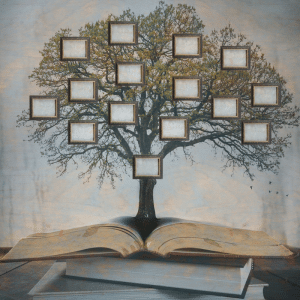Cultivating Friendships

Just as soil needs to be cultivated or loosened in order to grow plants, so also do we. We need to be able to be relaxed in order to focus our attention on another individual. If you are extremely stressed, you may need a friend to lean on, but that is not the time to try to make new friends. You’ll be unable to focus on their needs. Because friendship is reciprocal, you can use a stressful situation to deepen a relationship, but do not begin a new one in that way. If you do, your relationship may continue to follow the same pattern of one friend always advising and the other friend always needing advice. Instead, start your friendship when things are relatively normal and stable.
Set aside time to talk. Whether it is on the phone or writing back and forth, you’ll need to communicate if you want to get to know someone better. Be sure that that communication involves asking many questions of the other person and showing interest in what they have to say. Even if they have interests that are directly opposite to your own, you can still be interested in them. Ask questions like, “Why do you like football so much?” or “Why is orchestral music your favorite type?” Once you know a little bit more about the subject, you’ll be able to ask more directed questions and perhaps eventually be able to dialogue somewhat intelligently on that particular subject. If you do not know anything about the subject, do not act as if you do, but rather admit that you do not. There is no shame in not knowing about something. It simply means that you’ve not been exposed to the subject material yet. If you know nothing about something that they are passionate about, just be honest. In reality, they’d probably be very excited to share their passion with someone else.
Make an appointment to get together to do something you’d both enjoy. While it is true that friendships can be maintained long-distance, most relationships can benefit through some quality time spent together. If you live a great distance from one another, make arrangements to meet in the middle at an inexpensive location to spend the weekend. Or, take turns hosting the other person. Whichever way your choose to work it out, be sure that your costs are split evenly and that the activities are things that you’ll both enjoy. If it ends up being a good experience, you’re more likely to repeat it. If it is boring or annoying for one of the parties, they’ll not want a repeat & you’re sure to grow apart.
Help one another grow. If you recognize certain destructive behaviors in a friend, find out from them if they’re willing to talk about it with you. Sometimes this is a good thing to discover at the beginning of a friendship so you know whether they will be a life-time friend that will help you grow into a deeper person or more of an acquaintance. Start a conversation by saying, “I tend to be very direct with my friends if I notice that something is off or if it seems like they are making choices that may harm them. Will it annoy you or offend you if I do that with you?” Also let them know that you would expect them to do the same with you if they notice things that are not good. This lets them have an option of deciding that they would not like to be that close & also prepares them for a more direct approach in the future so that you will not need to tiptoe around difficult subjects. Often, people are uncomfortable with this type of honesty, especially if they’re dealing with addictions. It is always better to be aware of this before you invest loads of energy and time with a person. If they will end up resenting you for the perceived interference, you do not want to begin.
Pay attention to how your friend shows that they care. If they complement you with words often, they probably appreciate words. If you shower them with gifts and never say positive words they may not perceive it as care. If they like you to spend time with them & instead you send notes all the time, they may not consider you a caring person. People often will show you how they want to be treated by how they treat you. Pay attention & care for them in the way they need to be cared for.
Friendships are sometimes difficult, but are always worth it in the end! Keep up the good fight!




 We all know that we pass on to the next generation far more by genetics & nature than we ever pass on through intention, nurture or education. Let those things that we pass on be looked upon in the kindest light that they can be looked upon. The people of yesteryear were just like us. Trying their best to make it in difficult times, & doing their best to raise another generation with hope instead of bitterness of heart. Perhaps they succeeded, or perhaps they left a void in that area. If they did, we can certainly begin to fill the void & begin good stories to be passed down. Let our stories be those that will inspire a younger generation & give them hope for a better future & a stronger family line for years to come.
We all know that we pass on to the next generation far more by genetics & nature than we ever pass on through intention, nurture or education. Let those things that we pass on be looked upon in the kindest light that they can be looked upon. The people of yesteryear were just like us. Trying their best to make it in difficult times, & doing their best to raise another generation with hope instead of bitterness of heart. Perhaps they succeeded, or perhaps they left a void in that area. If they did, we can certainly begin to fill the void & begin good stories to be passed down. Let our stories be those that will inspire a younger generation & give them hope for a better future & a stronger family line for years to come.
 Now, I realize that not every family is a fairy-tale universe. There are genuinely harmful & hurtful family members & in such cases, you need to set up boundaries. What I AM saying, however, is not to burn bridges unnecessarily with people who are simply irritating you at the moment. There is a huge trend right now to cut people out of our lives because they just don't understand or because we do not agree politically or because they are “haters” (which in some cases just means that they've questioned some of the choices we have made in life & it makes us uncomfortable). Those people with different strengths than we have often annoy us because we wish we were as competent in that particular area. But, we also need to realize that disagreeing with others does not indicate hate. In some cases, it means that they care about us enough to enter into difficult topics with us. They want to help us, even if we're unwilling to accept that help.
Now, I realize that not every family is a fairy-tale universe. There are genuinely harmful & hurtful family members & in such cases, you need to set up boundaries. What I AM saying, however, is not to burn bridges unnecessarily with people who are simply irritating you at the moment. There is a huge trend right now to cut people out of our lives because they just don't understand or because we do not agree politically or because they are “haters” (which in some cases just means that they've questioned some of the choices we have made in life & it makes us uncomfortable). Those people with different strengths than we have often annoy us because we wish we were as competent in that particular area. But, we also need to realize that disagreeing with others does not indicate hate. In some cases, it means that they care about us enough to enter into difficult topics with us. They want to help us, even if we're unwilling to accept that help.


